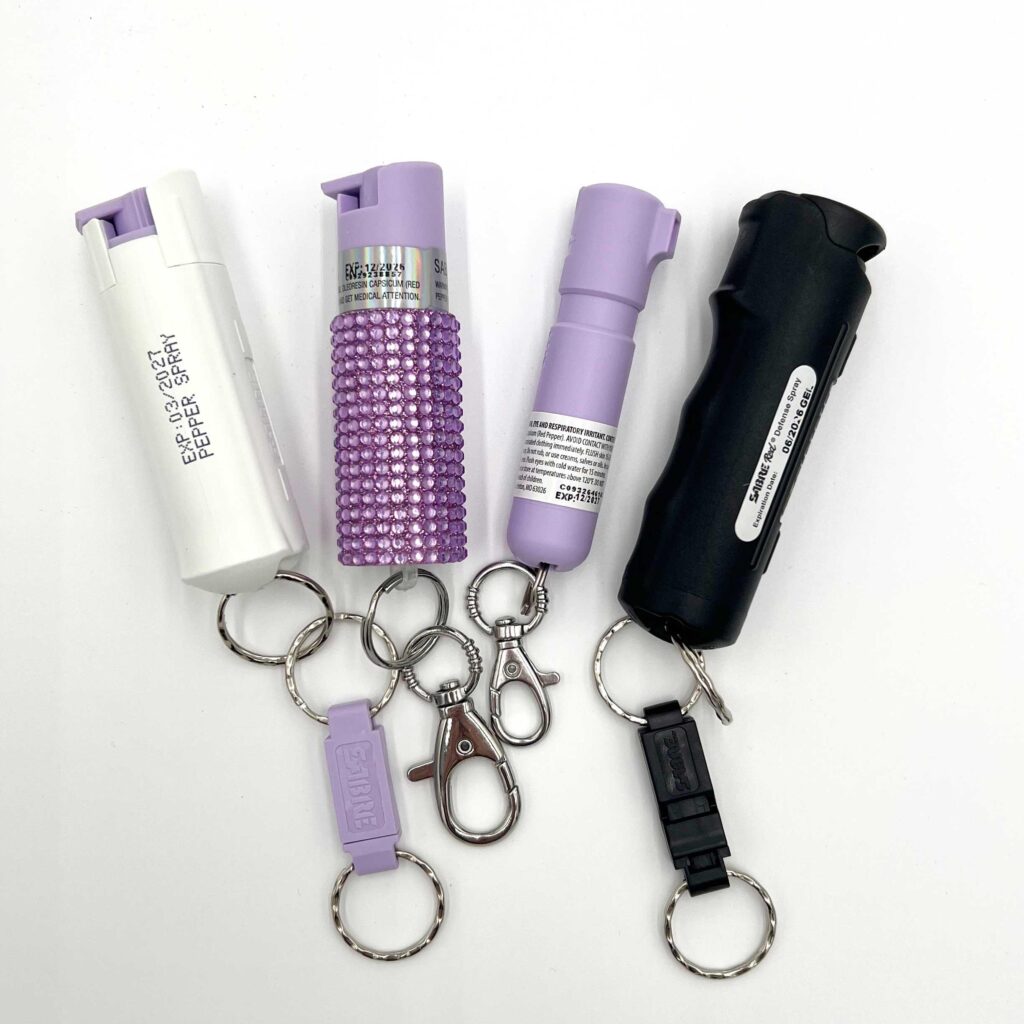Table of Contents
- The Chemical Breakdown and Reduced Effectiveness Over Time
- Health Risks Associated with Expired Formulations
- Legal Implications of Carrying and Using Outdated Pepper Spray
- Best Practices for Safe Storage and Timely Replacement
- Concluding Remarks
The Chemical Breakdown and Reduced Effectiveness Over Time
Over time, the active ingredients in pepper spray, primarily oleoresin capsicum (OC), undergo chemical decomposition. This deterioration results from exposure to factors such as heat, humidity, and light, which break down the compound’s molecular structure. As the spray’s potency diminishes, its ability to cause the intended inflammatory response on the eyes, skin, and respiratory system weakens significantly. Users relying on expired canisters may unknowingly deploy a formula that no longer delivers the intense irritation necessary for effective self-defense.
Additionally, the propellant and solvent components within the spray can degrade or evaporate, causing the pressure inside the container to drop. This mechanical decline can lead to incomplete or weak dispersal patterns, reducing the spray’s range and coverage. Consider these impacts of aged pepper spray:
- Diminished burning sensation: The chemical agent causes less pain and inflammation, undermining its deterrent effect.
- Reduced accuracy: Inconsistent spray patterns may fail to strike the assailant directly or cover the intended area.
- Risk of malfunction: Failure to discharge properly when most needed.
It’s crucial to regularly check expiration dates and replace pepper spray canisters to ensure maximum effectiveness and personal safety during critical moments.
Health Risks Associated with Expired Formulations
Using expired pepper spray poses significant dangers beyond just diminished effectiveness. Over time, the chemical compounds can degrade, leading to unpredictable reactions when deployed. This breakdown may result in increased irritants that can cause severe respiratory issues, skin burns, or eye damage far worse than expected. Individuals with pre-existing conditions such as asthma or sensitive skin are particularly vulnerable, potentially facing life-threatening complications if exposed to these altered formulas.
Moreover, the use of outdated sprays can trigger allergic responses due to the formation of new chemical byproducts. These risks include:
- Persistent coughing and choking spells
- Heightened inflammation and rash development
- Unexpected toxic reactions leading to dizziness or nausea
- Potential long-term damage to mucous membranes
Given these hazards, it is crucial to regularly check and replace pepper spray canisters to ensure safety not only from external threats but also from the formulation inside the container itself.
Legal Implications of Carrying and Using Outdated Pepper Spray
Carrying and deploying expired pepper spray can have serious legal consequences. Laws regulating self-defense tools often mandate that the product be within its effective and safe usage period. If an expired canister fails to incapacitate an attacker properly, authorities may question whether the user’s actions were justified under self-defense statutes. Moreover, possession of outdated or tampered pepper spray might violate local regulations, potentially resulting in fines or confiscation. It is essential to understand that the legal system may view reliance on expired substances as negligence, especially if harm results from improper defense.
In some jurisdictions, law enforcement agencies are empowered to inspect pepper spray canisters during routine stops or security checks. Having expired pepper spray not only risks non-compliance but can also undermine the credibility of your defense claim in court. Additionally, insurance companies may deny coverage for injuries incurred if it is found that outdated equipment was in your possession. To protect yourself, always keep your pepper spray fresh and registered according to local laws, and stay informed about any legal changes affecting its use.
Best Practices for Safe Storage and Timely Replacement
To maximize the effectiveness of your pepper spray, always store it in a cool, dry place away from direct sunlight and extreme temperatures. Excessive heat can cause the pressurized canister to weaken or even burst, while cold conditions may reduce the spray’s range and intensity. It’s also crucial to keep it accessible but secure, ensuring that it won’t accidentally discharge in pockets or bags. Consider using a protective case designed specifically for pepper spray to shield the canister from impacts and avoid accidental damage.
Regularly inspect your pepper spray for signs of wear and expiration. Most manufacturers print an expiration date on the canister, typically between 2 to 4 years from the date of manufacture. Beyond this date, the chemical potency diminishes, and the propellant pressure declines, rendering the spray less effective or completely unreliable in emergencies. To stay safe, mark your calendar to replace your pepper spray before it reaches its expiry. Here are some quick tips for timely replacement:
- Check the expiration date during regular safety gear reviews.
- Test the spray’s pressure away from people and pets, if safe and legal to do so.
- Set reminders in your phone or planner for replacement intervals.
Concluding Remarks
In conclusion, while pepper spray remains a vital self-defense tool, using expired canisters carries risks that shouldn’t be overlooked. The reduced potency and potential malfunctions can leave you vulnerable in critical moments, rendering your protection ineffective when you need it most. Regularly checking expiration dates and replacing old pepper spray ensures you maintain reliable defense. Stay informed, stay prepared, and always prioritize your safety by using fresh, effective equipment. After all, when it comes to personal security, cutting corners simply isn’t worth the risk.Check Our Other Blogs
- StunGun – Your Trusted Source for Stun Guns, Laws, and Self-Defense Tips
- PepperSprayLaws – Your Trusted Resource for Pepper Spray Information
- StunGunLaws – Your Trusted Guide to Stun Gun Legality and Safety




